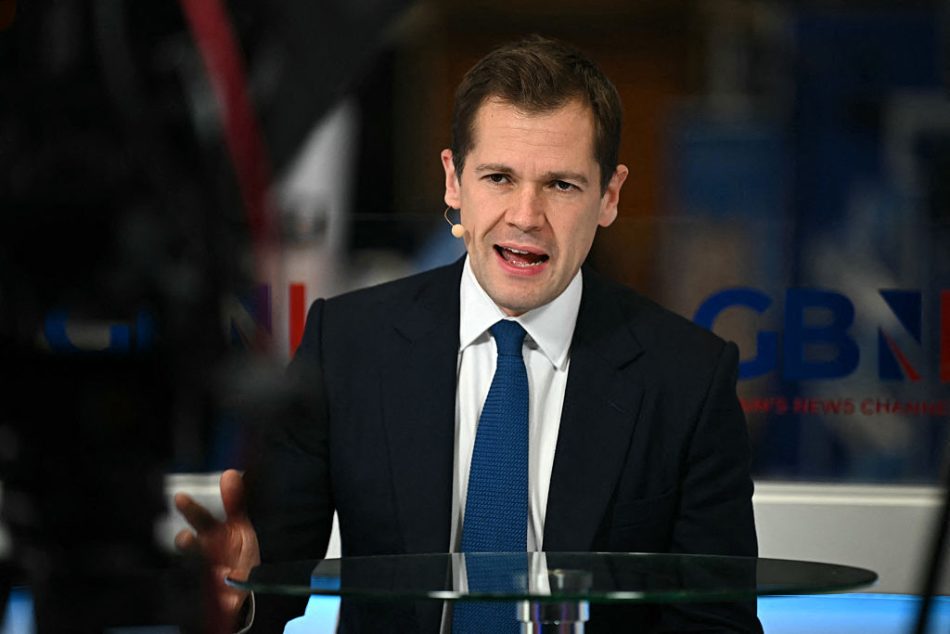Two years ago, as Chancellor, Rishi Sunak chose to jack up National Insurance contributions. It is a mark of how all over the place this government has been that cutting NI has now emerged as Sunak’s big idea.
Fairness to the Conservatives seems to mean the self-employed being excused from a 6 per cent tax which is paid by employees
Abolishing the main rate of NI for the self-employed by the end of next parliament is the one eye-catching initiative which was not trailed before the launch of the Conservative manifesto – the now customary ‘rabbit out of the hat’. Employees will get an NI cut, too – their rate will fall to 6 per cent by 2027. But there is a clear risk with Sunak’s strategy. Employees might feel a little hard done-by by comparison. It was only a few years ago, after all, that Philip Hammond tried to raise NI contributions for the self-employed in order, so he said, to make things fairer – a move which was hurriedly reversed before it came into effect after protests from within the party. Now, fairness to the Conservatives seems to mean the self-employed being excused from a 6 per cent tax which is paid by employees.
Employees greatly out-number the self-employed, which is why, according to the Tories’ own costings, cutting 2 per cent from employees’ rates will cost the Exchequer £10.3 billion by 2029-30 and cutting the self-employed rate altogether will cost £2.6 billion. Those are by far the biggest of the tax-cutting promises. The ‘Triple Lock Plus’ – raising the tax-free allowance to ensure that pensioners don’t pay tax on the state pension – has been costed at £2.4 billion by 2029-30, ending the single earner penalty for child benefit £1.3 billion and reducing stamp duty for first time buyers at £590 million.
The manifesto is silent, however, on inheritance tax, which will anger many in the party. There is not even a promise to raise the threshold with inflation. In the spending side, an extra £5.7 billion to raise defence spending to 2.5 per cent of GDP by 2029-30 stands out – though that could well be overtaken by events if, say, Putin decided to help himself to Nato territory in Eastern Europe.
This is more like a five-year budget than a manifesto, but there are one or two important measures which do not relate to budgeting. There will be a new legal target for national food security. It doesn’t say what this target will be, what it will mean in practice nor how it will be enforced. But, like the government’s existing legally binding net zero target, it could turn out to be a hostage to fortune. Why would a government want to tie itself down legally to a target, inviting people to sue it if it fails? For context, in the mid 1980s Britain produced 75 per cent of the food consumed in Britain. It is now down to around 60 per cent. Trouble is, this target will clash with some of the government’s other targets, like house building or increasing solar farms.
Another looming problem lies in ruling out any per-mile road pricing scheme – either by central government or councils. Yet the transition to electric cars – which the government is enforcing through the Zero Emissions Vehicle mandate, which demands that 80 per cent of cars sold by 2030 are pure electric – will mean the eventual loss of £28 billion worth of fuel duty. The loss of that revenue doesn’t appear in the Tories’ costings. There is also a promise to reverse Sadiq Khan’s Ulez expansion, which rather raises the question: why didn’t the government act to stop it in the first place?
The Conservatives are certainly not going for the campus vote. There is a promise to fund 100,000 apprenticeships by stopping funding for ‘rip-off degrees’ – which seem to be defined as those which have excessive drop-out rates or which leave their students worse-off than if they hadn’t gone to university. That will be cheered by many, though is bound to make Conservative MPs even less popular in academia.
Watch more analysis from Katy Balls, Kate Andrews, and James Heale on Spectator TV:
Join Fraser Nelson, Katy Balls and Kate Andrews for a post-election live recording of Coffee House Shots in Westminster, Thursday 11 July. Bar opens 6.30 p.m., recording starts 7 p.m. www.spectator.co.uk/shotslive








Comments